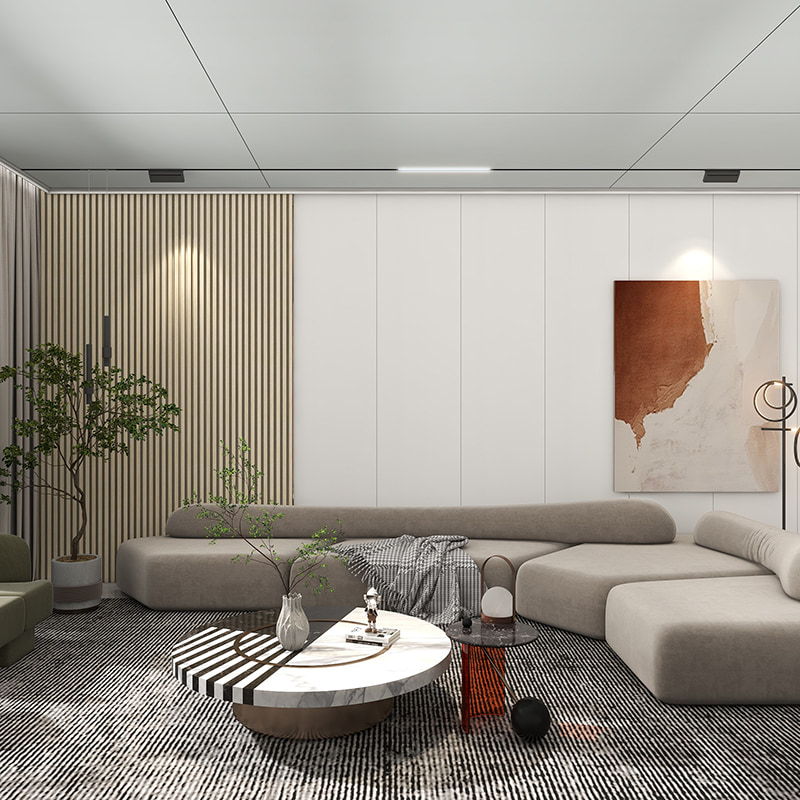In the field of modern construction, solid wall panels are highly favored for their excellent performance. Among them, the non-combustible materials used in solid wall panels, with their high melting point and flame retardancy, can still maintain structural stability in high temperature environments, becoming an important guarantee for building safety.
First, let's take a look at the non-combustible materials used in solid wall panels. These materials usually include high-performance concrete, fireproof bricks, mineral fiberboards, etc., which have extremely high melting points and excellent flame retardancy. This means that in the event of a fire, these materials will not burn or support combustion, thereby effectively preventing the spread of the fire.
The reason why these non-combustible materials can maintain structural stability at high temperatures is mainly due to their unique physical and chemical properties. The high melting point means that these materials need to reach extremely high temperatures before they begin to melt or deform, while the flame retardancy makes them not produce flammable gases or toxic smoke even at high temperatures. These characteristics enable solid wall panels to maintain their original structural form when a fire occurs, and are not easy to break or collapse.
In high temperature environments, the non-combustible materials used in solid wall panels can also play an excellent thermal insulation effect. They can effectively prevent heat from transferring to the interior, lower the indoor temperature, and buy precious time for personnel evacuation and fire fighting and rescue. At the same time, these non-combustible materials can also slow down the spread of fire and reduce the degree of damage to the building caused by fire.
In addition to high temperature stability, the non-combustible materials of solid wall panels have other advantages. For example, they usually have good sound insulation performance, which can reduce the impact of noise on the indoor environment; at the same time, these materials also have high strength and durability, and can withstand the impact and wear of various external forces.
In practical applications, the non-combustible materials of solid wall panels have been widely used. Whether it is a residential, commercial complex or industrial plant, solid wall panels can provide stable support and reliable fire protection for buildings. When a fire occurs, solid wall panels can quickly play a role, effectively prevent the spread of fire, and provide strong protection for people's lives and property safety.
The non-combustible materials used in solid wall panels can maintain the stability of the structure at high temperatures with their high melting point and flame retardancy, becoming an important guardian of building safety. In the future construction field, as people's requirements for building safety performance continue to increase, the application of solid wall panels and their non-combustible materials will become more extensive. We have reason to believe that solid wall panels will continue to play their unique advantages and make greater contributions to the sustainable development of the construction industry.

 English
English Español
Español عربى
عربى












